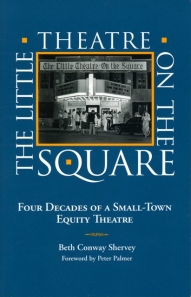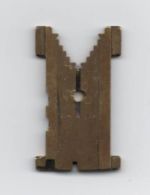I’ve been cast, by choice or by default, in any number of roles: academician, author, daughter, editor, ethnographer, (ex)wife, (grants)writer, mother, photographer, researcher, teacher. Many have been played simultaneously; others are from what feels to be a time long gone by. As I face the abyss of middle age (as socially constructed as it might be), I am trying to reconnect with parts of my creative and professional past to be able to take them into the near and distant future.
I grew up in Sullivan, Illinois, and had the good fortunate to do my dissertation on my hometown. I will get to that in a minute.
For most of my childhood, my mother was an editor for the local newspaper and my father was the county planning and zoning commissioner. Each of their professional roles influenced much of what I chose to study and do. I remember my mother’s early years with the newspaper very clearly including Linotype, and when they switched to photo-ready layout. After school, my sister and I would hang out at the newspaper office and at the courthouse (probably driving folks nuts at both places). Time spent at the newspaper office and getting to know how it all operated definitely instilled in me a passion, if not awakening a latent talent, for writing and photography. The role of a weekly newspaper in a rural county with one stoplight plus the palpability of a local government in action set the stage for interest in community theory and local ethnography.
The local institution that defined life in Sullivan and, subsequently, my dissertation, was The Little Theatre on the Square. Since 1959, The Little Theatre has been the only Equity theatre between Chicago and St. Louis, bringing in all variety of theatre people (stars, techies, apprentices), tourists, and new businesses. As I discussed in my dissertation/book, the theatre changed the cultural tenor of the community, especially through the 1960s and 1970s, of a very insular, homogenous farming town. More to the point of post, working at the theatre as a 14-year-old, first as an usher than as the photographer’s assistant, pretty much altered my perceptions and definitions of life starting with the role of theatre and the view of the world through a camera lens.
The course of my academic adventures–undergraduate and first graduate foray–took me through news writing, international politics, Russian history, urban policy analysis, architectural history, museum studies, and oral history/ethnography. Ethnography defined the focus of my doctoral work, providing a similar level of inquiry and potential for storytelling as I had known through photography. In other words, both allow for socially acceptable nosiness. Teaching added a whole other dimension of potential exultation. I didn’t begin my PhD program with any intention of teaching but quickly and totally captivated.
The upshot is that I am trying to rekindle those things that had previously captivated me. When Plan A–a teaching gig–didn’t come through, I followed Plan B–working as a grants writer for a community college. This all occurred j ust as the economy was imploding. (Working in grants development during a recession is not for the faint of heart.) I did find much of the grants process enjoyable and satisfying. A very significant downside was that too few people in positions of authority, power, and influence had any real understanding of the grants world, and I was just apathetic enough to not educate the masses or evangelize for the cause. Consequently, after being deaccessioned from a grants gig this summer, I decided it was time to recalibrate my navigational system and head in a different direction. I know the general direction in which I am heading, but I am just not sure yet of the exact compass point.
ust as the economy was imploding. (Working in grants development during a recession is not for the faint of heart.) I did find much of the grants process enjoyable and satisfying. A very significant downside was that too few people in positions of authority, power, and influence had any real understanding of the grants world, and I was just apathetic enough to not educate the masses or evangelize for the cause. Consequently, after being deaccessioned from a grants gig this summer, I decided it was time to recalibrate my navigational system and head in a different direction. I know the general direction in which I am heading, but I am just not sure yet of the exact compass point.


